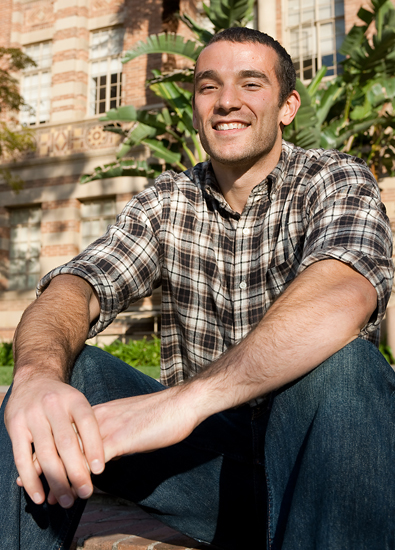
Blood platelet donor Jonathan Quan always thought his donated platelets just left his arm and entered a pool of anonymous platelets that cancer patients drew from when in need.
It was like that for the many years Quan had donated, until he received an invitation to a special donor recognition luncheon where he was finally able to put a face to the life he had sustained.
Alta Ray, a leukemia survivor, required 93 units of blood platelets, including Quan’s, during her 12-month fight against leukemia. Previously, Quan and the other donors whose platelets gave Ray the means to come out victorious had remained faceless, typical of how donor-patient relationships are.
Ray’s thanks for the platelets that were brought to her hospital room remained distant until the UCLA Blood and Platelet Center united patient and donor.
At their annual reception on Jan. 29, Ray was given the opportunity to personally thank her donors. Similarly, the donors saw the benefits of their platelet donations when they met the woman they helped to save.
The donors were called to the stage one-by-one to meet Ray for the first time and greeted each other with beaming smiles and warm embraces.
The donors ranged in age from 21 to 72 and represented a range of ethnicities. Each had a unique story behind their motivations to donate.
But their paths were intertwined in the effort to sustain Ray’s life.
In addition to UCLA materials science engineering graduate student Quan, fourth-year UCLA student Omar Sandhu and 2004 UCLA alumnus Aaron Giacosa also represented the donors.
Sandhu, a history and psychology student, was inspired to donate by his mom, who received a phone call thanking her for her donation, which went toward saving an injured policeman’s life.
When Sandhu, now a frequent donor, received a phone call inviting him to the luncheon and thanking him for helping to save Ray’s life, he said he was taken aback that a simple donation could affect a person and their whole extended family.
Giacosa, a 10-year donor, had been invited to numerous donor recognition luncheons thanking him for his generosity, but he had never been able to put a face to the recipients of his platelets. He said it is heartwarming to see someone who received a part of him and hear Ray speak about her struggles and how his contribution helped her through them.
“(The donors are) a mix of people with a common denominator of wanting to help people,” Giacosa said.
While platelet donation can last up to two hours, it has become a routine for many of the donors.
“It’s a really addicting thing to do,” Sandhu said, who is so frequent a donor that the staff members have become his friends. “There isn’t a good reason not to donate. … You can potentially save someone’s life.”
To donate platelets, a person must be at least 17 years old, weigh at least 110 pounds and have good general health. In addition, donors must not take aspirin or anti-inflammatory drugs within 48 hours of donation and must be willing to allow two hours for the donation process. Contact gotblood@ucla.edu or call 310-825-0888 to schedule a donation.
With reports from Samantha Schaefer, Bruin senior staff.
